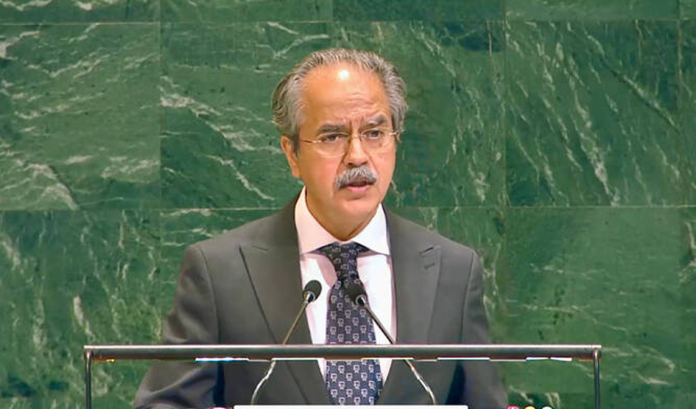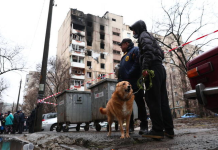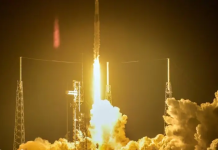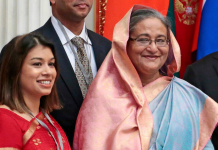UNITED NATIONS, JUL 10 (DNA):Voicing deep concern over Yemen’s protracted crisis, Pakistan has called for reinvigorating inclusive negotiations and addressing the interconnected political, humanitarian, and socio-economic challenges facing the impoverished country.
“Years of conflict have inflicted immense suffering on the Yemeni people –Political fragmentation, economic collapse, and environmental degradation have further exacerbated their plight,” Ambassador Asim Iftikhar Ahmad, permanent representatives of Pakistan to the United Nations, told the UN Security Council on Wednesday.
“What began as an internal crisis has since assumed broader regional dimensions, with serious implications for international peace and security,” he said in a debate on the situation in Yemen.
The crisis in Yemen, which worsened in 2014 after Houthi rebels (known officially as Ansar-Allah) seized the capital, Sanaa, has been marked by complex political and military tensions. More than 17 million people – half the country’s population – remain dependent on humanitarian assistance and protection.
Opening the debate, Hans Grundberg, Special Envoy of the Secretary-General for Yemen, welcomed the ceasefire between Iran and Israel, but cited multiple missile attacks by the Houthis against Israel during the reporting period.
He further voiced grave concern over attacks on two commercial ships this week in the Red Sea, resulting in civilian loss of life and potential environmental damage — the first such attacks in over seven months.
Noting that Israeli air strikes in response hit Sana’a and the ports of Hudaydah, Ras Issa and Salif, Grundberg, the special envoy, emphasized: “Freedom of navigation in the Red Sea must be safeguarded, and civilian infrastructure must never become a target of conflict.”
In his remarks, Ambassador Asim Iftikhar, the Pakistani envoy, said the situation required “urgent, collective and constructive action”
“The risk of renewed hostilities could jeopardize the ongoing fragile peace efforts and further aggravate civilian suffering,” he said. I
In this regard, the Pakistani envoy urged all parties to build upon the December 2023 Roadmap, which provides a credible basis for a sustainable political solution. “All stakeholders must intensify efforts to break the political impasse and move decisively toward a Yemeni-owned and Yemeni-led political process, under the auspices of the United Nations.”
Expressing deep concern over the recent escalation and attacks, including on ship and civilians infrastructure, Ambassador Asim Iftikhar underscored the urgent need for de-escalation, dialogue, and diplomacy to preserve regional peace and stability. “Durable peace in the Middle East requires an immediate ceasefire in Gaza and urgent, credible steps to realize Palestinians statehood in accordance with international legitimacy.
Warning about the risk of famine, he urged the international community to respond generously to OCHA’s humanitarian appeal, reiterated by Tom Fletcher, the UN relief chief, which was also noted by Summer Nasser al-Yafai, Chief Executive Officer of Yemen Aid, and ensure predictable and sustained funding, and support the scaling-up of humanitarian operations.
The Pakistani envoy also joined other members in strongly condemning the continued arbitrary detention of UN personnel, humanitarian workers, and diplomatic staff by the Houthi authorities since 2021, as constituting a violation of international law, demanding their immediate release.
In conclusion, Ambassador Asim Iftikhar said that only a comprehensive approach, anchored in inclusive political dialogue and urgent humanitarian action can pave the way for lasting peace and stability in Yemen. “The Council must send a united and unequivocal message: the people of Yemen deserve peace, dignity, and a future free from fear, hunger, and despair.”

















